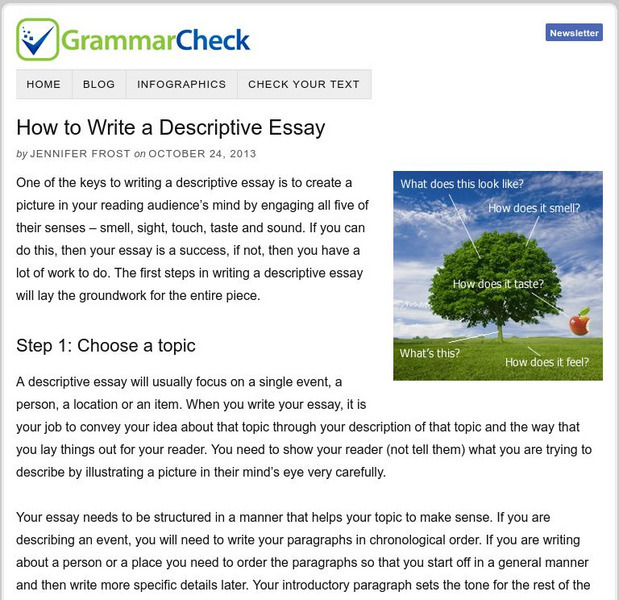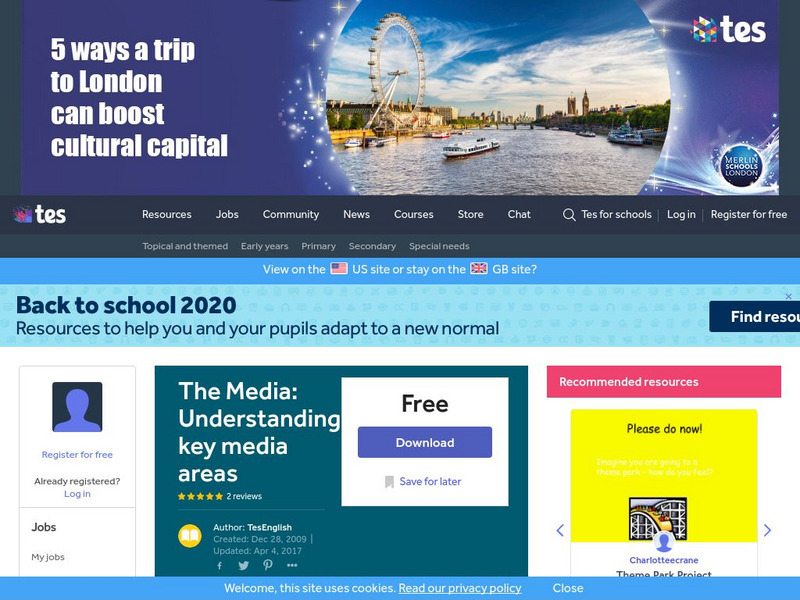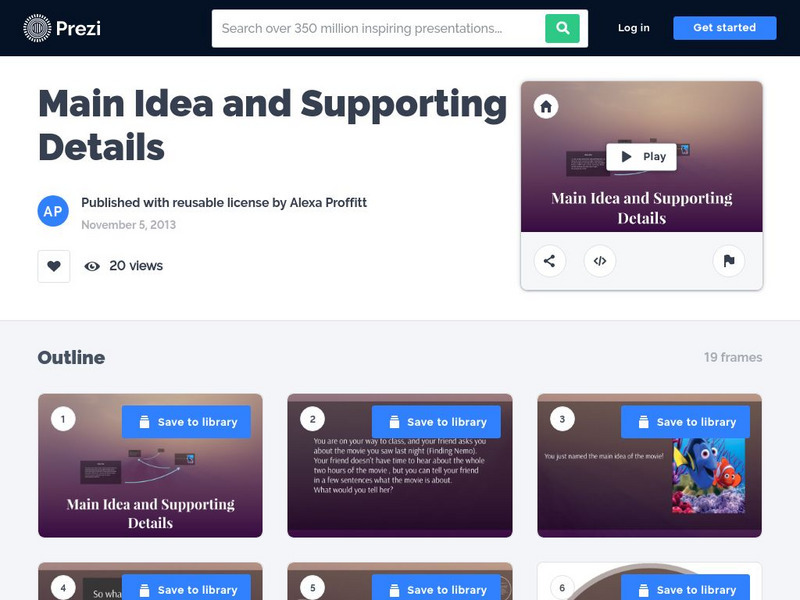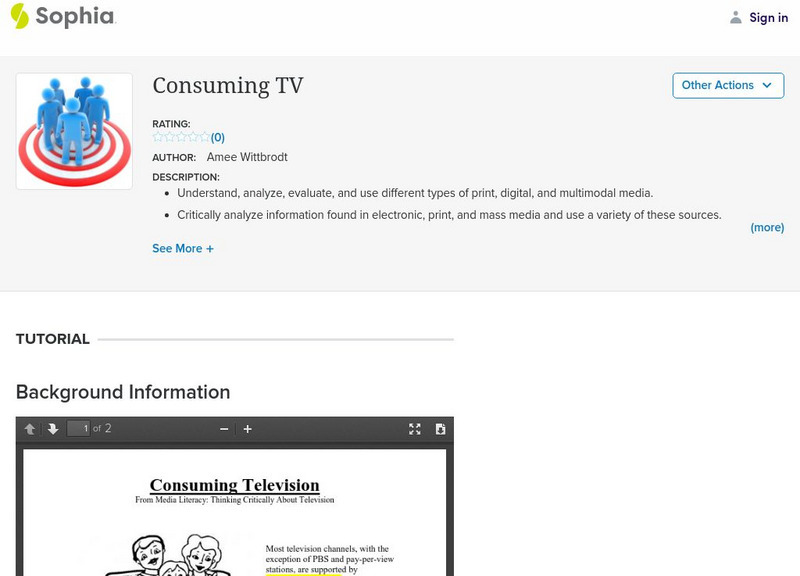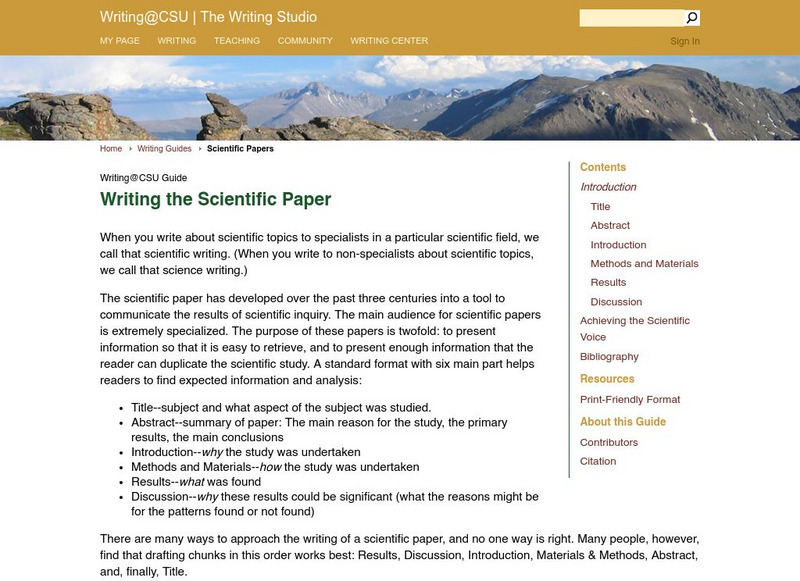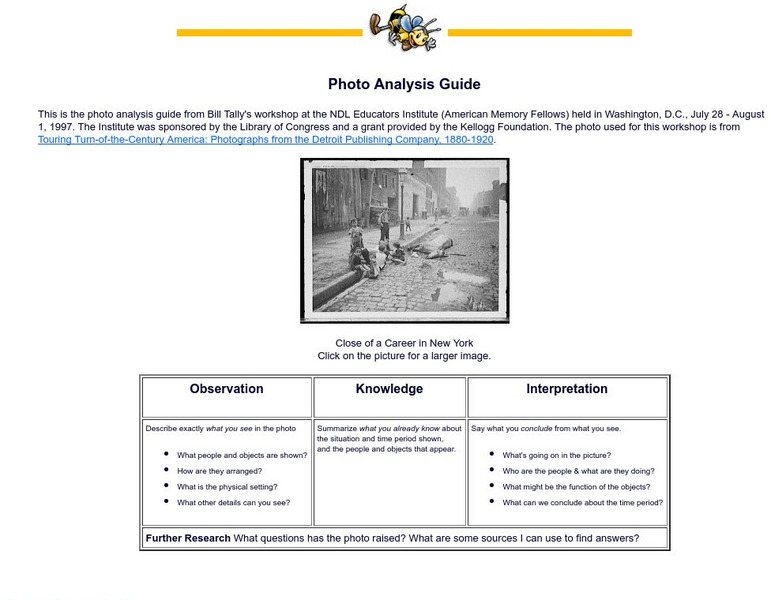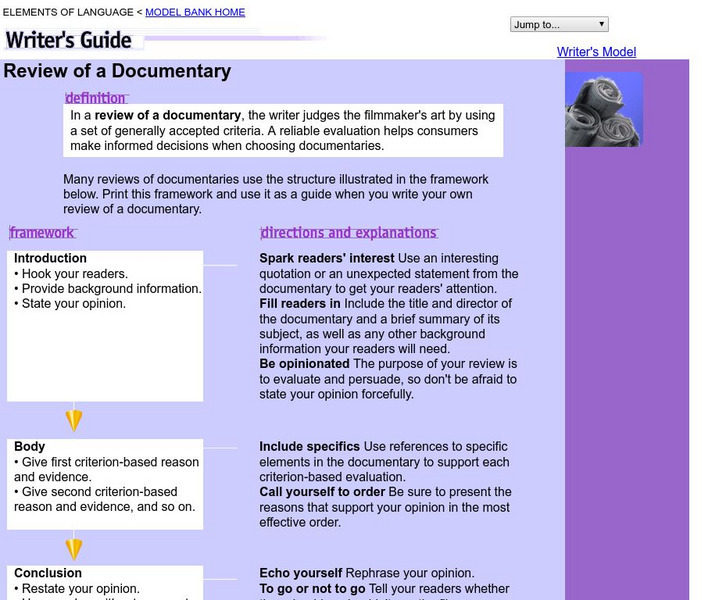ReadWriteThink
Read Write Think: K W L S Chart
A printable K-W-L-S sheet to help students activate prior knowledge, ask questions, record new learning, and then ask additional questions to extend inquiry beyond the text . Directions on how to use this type of graphic organize as well...
ReadWriteThink
Read Write Think: Persuasion Rubric
A printable four-point rubric to use when assessing a persuasive piece with a focus on organization, a goal or thesis, reasons/support, audience, word choice, visuals/delivery, and grammar/usage/mechanics. Directions on how to use this...
ReadWriteThink
Read Write Think: Power Notes
A printable note-taking format where students create an outline by assigning powers to the main idea and supporting details. Directions on how to use this type of rubric as well as lists of teaching ideas and related resources are also...
ReadWriteThink
Read Write Think: Get the Gist: A Summarizing Strategy for Any Content Area
A five-part standards-based lesson plan in which students learn to write a 20 word summary of an informational text by focusing on answering the questions who, what, when, where, why, and how. This strategy can be applied to any content...
ReadWriteThink
Read Write Think: Critical Media Literacy: Commercial Advertising
In this lesson, learners will examine mass media critically and become aware of how much advertising is around them. They will realize the impact media has on social equality, what people buy, and on culture.
ReadWriteThink
Read Write Think: Collaborating, Writing, Linking: Use Wiki to Tell Stories Online
This lesson has students create stories that reflect wiki kind of reading. Students begin by reading untraditional books that use fragmented storylines, multiple perspectives, and unresolved plots. They apply these same types of...
Polk Brothers Foundation Center for Urban Education at DePaul University
De Paul University: Center for Urban Education: Identify Important Info When I Read [Pdf]
Links to self-assessment activities for content area fluency activities are found on this resource. Students will read, time themselves, and record facts. Students will improve their reading rates and levels of comprehension.
E Reading Worksheets
E Reading Worksheets: Fact and Opinion Lessons
In this learning module, students will learn more about the differences between facts and opinions. A PowerPoint presentation and related activity are provided to reinforce the topic of facts vs. opinions. This module is designed to...
E Reading Worksheets
E Reading Worksheets: Research Paper Topics
This Ereading article discusses the importance of choosing the "right" research topic. Afterwards, 101 possible research paper topics are listed. W.11-12.7 Research
Science Education Resource Center at Carleton College
Serc: Reading Reflections
An exercise consisting of three reflective questions that students respond to after completing an assigned reading in any curriculum area. The task promotes skills in critical thinking and self-assessment.
Other
Six Minutes: Speech Analysis #1: How to Study and Critique a Speech
Dlugen presents a detailed collection of tips to observe when critiquing others' speeches. This skill is critical in improving individual presentation abilities. SL.9-10.3 Eval Presentation. CCSS.ELA-Literacy.CCRA.SL.3, SL.9-10.3 Eval...
Grammar Check
Grammar Check: How to Write a Descriptive Essay
This article provides seven steps to follow when writing a descriptive essay. Ideas for ways to incorporate sensory details are emphasized. W.9-10.3d Precise/sensory details
TES Global
Tes: The Media: Understanding Key Media Areas
[Free Registration/Login Required] During this unit of study, students will analyze several types of advertisements. Students will analyze how authors pay attention to the language and visuals to appeal to their audiences.
Other
Prezi: Main Idea and Supporting Details
Defines and provides examples of the main idea of a paragraph and also explores the meaning of key details.
Sophia Learning
Sophia: Consuming Tv
In this tutorial, students will read about the viewing of television in American households through the reading of a passage and the viewing of a video segment. Students will then engage in answering basic comprehension questions,...
Sophia Learning
Sophia: Supporting Details: Facts and Statistics
This lesson discusses how statistics can be used as supporting details. This tutorial shares a short audio lesson [05:16] and supplemental notes with the lesson's content.
Colorado State University
Colorado State Writing Center: Writing the Scientific Paper
A guide to the world of writing in the scientific field. Includes information about scientific-format papers, abstracts, hypotheses and results, and provides several examples.
Cyberbee
Cyberbee: Photo Analysis Guide
This site is a guide to help students analyze visual media. Further research questions included.
Houghton Mifflin Harcourt
Holt, Rinehart and Winston: Writer's Model: Review of a Documentary
A one-page guide to writing a review of a documentary.
Other
Media Education Foundation: Deconstructing a Video Advertisement [Pdf]
Handout that leads students through an exploration of the visual and audio elements of a video advertisement as well as the effect these elements have on the intended audience and the community as a whole.
Education Development Center
Education Development Center: Tv411: Reading Structure of a News Story
Interactive lesson explains the content and organization of newspaper articles. Includes self-scoring exercises for practicing identifying the five W's (who, what, when, where, and why) in a series of brief news articles and a...
Education Development Center
Education Development Center: Tv411: Parts of a Newspaper
Students click through a lesson about the parts of a newspaper and answer questions about the types of articles found in each section, headlines, and captions that would go with photographs. Links to related videos are also provided.
Education Development Center
Tv411: Reading: Parts of a Newspaper
A series of three activities help readers become familiar with parts of a newspaper, from sections to headlines and captions.
Education Development Center
Tv411: Strategies for Better Reading: Activities 3 of 3
Use these eight multiple choice passages to practice summarizing the main idea of a paragraph.






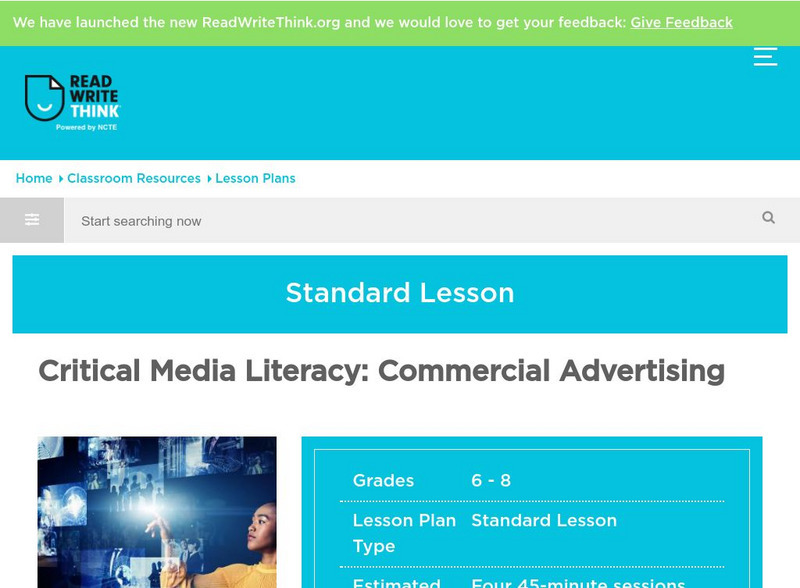

![De Paul University: Center for Urban Education: Identify Important Info When I Read [Pdf] Unknown Type De Paul University: Center for Urban Education: Identify Important Info When I Read [Pdf] Unknown Type](https://content.lessonplanet.com/knovation/original/119990-77415f8bf3a2d78884ec00eceb814d0c.jpg?1661787069)



